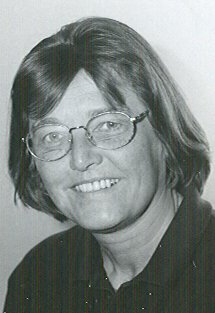Geertje Lycklama à Nijeholt, born in Wonseradeel, the Netherlands, in 1938. Ph.D. from the VU University, Amsterdam. Professor of Women and Development Studies at the Institute of Social Studies, The Hague († 2014).
Fellow (1 September 1995 – 30 June 1996)
The ten months I spent at NIAS have served me well, both to reflect on work accomplished and to chart possible courses for the future. In addition it allowed me to complete a piece of collaborative research by co-editing a book and to collect material for a new line in my research on international labour migration of women.
While at NIAS, I had to change my initial plan to focus on research in progress concerning the international labour migration of women, exploring in particular East-West migration in the context of the process of transition in Eastern Europe. This change of plan was caused by a request from Garland Publishing, Inc., New York, to update and finalise an as yet unpublished manuscript with the working title “Triangle of Empowerment”. In spite of this I was able, however, to collect an impressive set of relevant literature and furthermore started exploring the usefulness of the data collected by official agencies concerned with the East-West migration issue, such as OECD (SOPEMI), ILO, IOM, UNHCR etc.
The triangle-of-empowerment-research involves a piece of collaborative research, exploring a set of eight case studies the question how women in their particular national context organise to serve their interests and, in particular, how they institutionalise their quest for empowerment in the political arena. Researchers have considered the various actors involved, but so far seldom been concerned with the interaction between them. The editing involved the update of the case studies: Peru, Brazil, Chili, Jamaica, Mexico, Nicaragua, Norway and the Netherlands. As one of a team of three editors I was responsible for the case studies of Norway and the Netherlands. In addition I was responsible for writing a new chapter on the international institutional framework within which processes of empowerment are taking place, thus providing the context for the case studies to be placed in and understood. The NIAS setting has been really ideal for accomplishing these tasks successfully.
